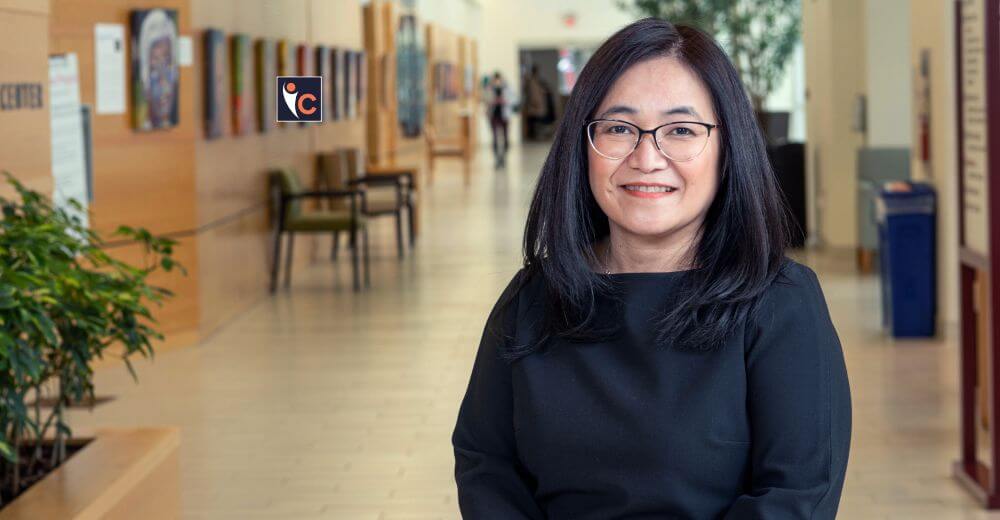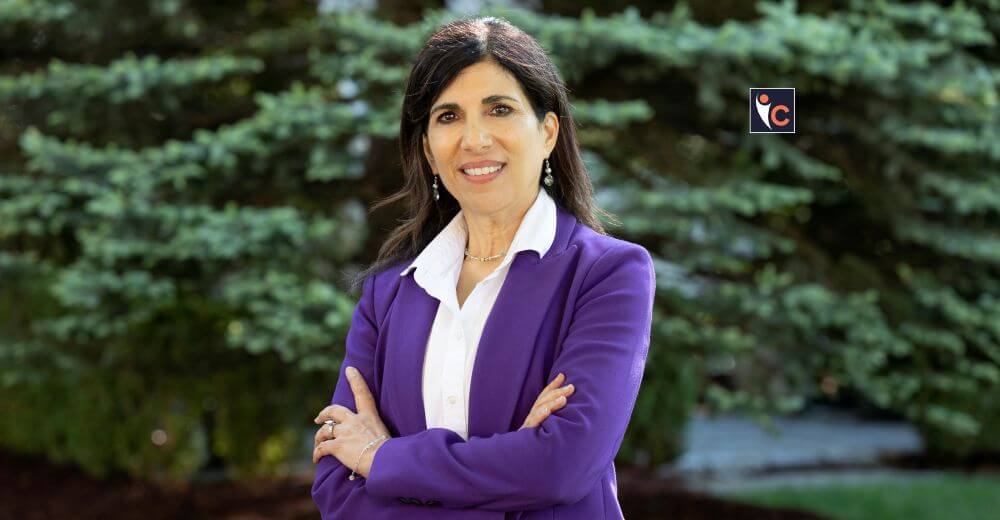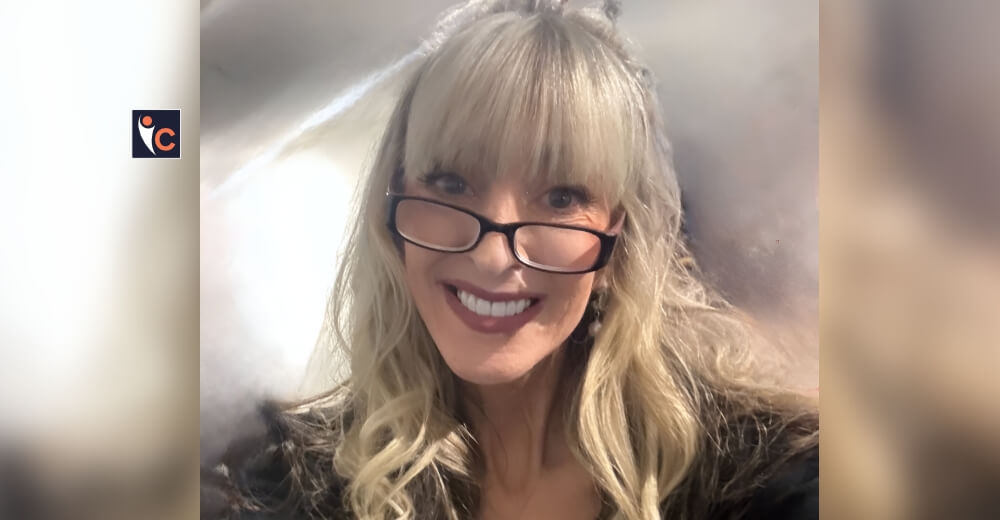The recent pandemic made the whole world witness not just horrific circumstances, but also individuals who showed sheer courage and saved the day. These individuals were seen in the role of front-line workers. Right from doctors and nurses to sanitation staff.
As crucial as their contribution was to the cause, these front-line workers were assisted by other service providers who efficiently connected doctors to patients. This was an important role to be played when the virus was violently spreading through person-to-person transmission.
Fathima Batcha is one important name among such responsible leaders who aided the society in similar times of need. Fathima is the Founder and CEO of Sollu, a software company that virtually connects people to supreme healthcare services and lets them avail the services through telehealth and more.
In the following interview, Fathima takes us through journey of the origin of her company and tells us what challenges she faced along the way, and how she successfully overcame them to offer easy healthcare to people.
Give us a brief overview of your journey as the Founder and CEO of Sollu.
I started Sollu in 2016 as a patient engagement company, because of the inability of doctors to continually connect with their patients, due to the sheer number of patients behind one doctor. However, I realised that before engagement, even communication was an issue. There was absolutely no way for a patient to get connected to a doctor in case of an emergency, or to the hospital to solve their urgent issues.
I was personally affected when I could not reach the hospital and my doctor, which led to devastating consequences. This was when I decided to focus on building and managing call centres for healthcare institutions.
We realised that traditional call centres do not work for healthcare institutions and the value of a call is radically different for this industry. It’s not just a lead, but you could actually save a life and we wanted to ensure that every call is answered in a healthcare institution and with this belief, we started to take over or setup and manage hospital call centres one after the other.
Today, I am so pleased to tell you that if any of you try to reach any of our client organizations, you can be rest assured that your call will not be lost. Either your call is answered immediately, or they will reach out to you immediately.
We understood the pain points that the management of the organizations or the owners actually have, regarding calculating the ROI on their marketing spends, by understanding how many people enquired regarding their services versus how many conversions actually happened. Today, they have access to all this information and Sollu has become an important tool to measure this information.
In this way, we are able to work on our vision of ensuring every call is answered and lives are saved and at the same time we are able to provide great value to our clients, by managing the entire patient communication journey end to end.
Tell us more about Sollu, its vision, and the key aspects of its stronghold in the HealthTech space.
As mentioned earlier, Sollu was started with this pain point, and we wanted to make a difference because we realised that healthcare organisations do not have sophisticated call centres similar to a robust service centre or support centre of a technological company. We knew that just providing the technology would not be enough for a hospital. So, we brought together our learnings from not only how to build a call centre but also what is required to give tangible results to the client.
We realised that every hospital or even a small healthcare institution would not be able to set up a sophisticated call centre with a dedicated space, complicated infrastructure, a call centre manager, periodic training for agents and supervisors to manage the agents, and ensure agents empathize with the patients. We built our solution offering based on these points where we not only provide the technology, but manage the call centre by training the agents, monitoring them, and measuring conversions while ensuring not a single call is dropped.
We are the only company which provides such a service in addition to our technology solution as well. Hospital owners and management teams are relieved at being able to offload management of this critical function of the organization. We do this with the help of automated systems, Artificial Intelligence, and a dedicated Customer Success team. This is one of the reasons why we have a stronghold in the HealthTech space.
From a business leadership perspective, what is your opinion on the impact of the COVID-19 pandemic on the healthcare sector?
A large majority of our clients belong to the healthcare sector. When the first wave hit, it definitely was a severe blow to our clients, and nobody knew what was happening so, they were greatly impacted especially, in a country where healthcare profit margins are not very high and the cost for operating a good institution is very high, and with no support from the government.
We have had some smaller single specialty institutions shut down as well during this time of crisis. However, most of them were patient and extremely resilient as they immediately took up other modes of communication. Many of our clients immediately switched to tele-consultations and many of them started doing video consultations as well.
They were quickly able to set up Covid centres and Covid recovery centres. We then saw them bounce back within a couple of months and what we noticed is that they were not really affected during the second wave because they knew what had to be done.
Healthcare is such a priority during this time, and I think today people have started taking the vaccination and they have realized that you can’t really wait till the end of the pandemic to go in for your fertility treatment or an elective surgery. Now people are not as paranoid as they were in the beginning when we did not know much about this virus. We are dealing with it and doing what requires to be done while taking safety measures.
Today, call volumes and the number of appointments in hospitals are back to their pre-Covid numbers. I think people have accepted this as a way of life and all the hospitals are operating exactly how they operated pre-Covid the only difference being, an accelerated adoption of technology this time around.
What is your opinion on the necessity for healthcare organizations to align their offerings with modern technological developments, especially when it comes to catering to the ever-evolving patient needs and preferences?
Prior to Sollu, we tried to promote a tele-consultation solution but there were no takers. However, today the jump has been so significant and practically every hospital has moved towards video and tele consultations. I think it is here to stay because when you have a child you would rather schedule a video consultation rather than take the child to the hospital with the risk of the pandemic.
The doctors can also safely provide the information via online channels and moreover they don’t have to see every patient who might have very mild symptoms and has to come all the way to see the doctor and meet only those with acute conditions. The adoption has been very high both on the doctor’s as well as the patient’s side. So even post-covid, I feel this process will continue.
This would be great for India especially, since here, even for a small ailment, you have to go and wait for hours together in queue at the hospital to actually get to see the doctor, who might have 50-100 appointments that evening. Using these technologies ensures that this does not happen, and the doctors are also compensated for the same through these solutions.
Earlier, this was not the case; the patient will speak to the doctor on the phone, or they would do a WhatsApp consultation without any payment, but today online payments have been completely accepted and there has been accelerated adoption of the technologies by both the doctors, as well as the patients in different parts of the country.
What efforts did you take during the pandemic to sustain operations and ensure safety of your team at the same time?
As the Covid numbers were increasing significantly, even before the lockdown started, we immediately asked our team to start working from home. We continue to work from home till date. The transition was easy because of the systems and processes we had in place. We could seamlessly switch to a work from home mode.
Our sales team who sporadically had to visit clients, we ensured that their Covid insurances were taken and as soon as the vaccines became available, we pushed them to ensure that they get vaccinated before going out for meetings. Today, we have also accepted the fact that sales meetings can happen online, and we urge to have these meetings online and only if this is not possible, they go and meet the client.
All our backend servers and telephone lines are in secure and robust data centres, which is why we could immediately switch to such a mode. We never had them on our premises and instead always ensured that they were in data centres so in case of any calamity there would be absolutely no disturbance to our operations, and everything will continue seamlessly without being affected. Even during the Chennai floods and during Vardah our operations were not affected, and our clients did not lose any calls during this time.
If given a chance, what is the one thing that you would change about the HealthTech ecosystem in India?
Now that healthcare organizations have recognised the evolving needs of the patient, one thing I would like to change is to have increased adoption of common standards and interoperability standards, so that different healthcare technology solutions can interact with each other, and they could provide a unified solution.
Today it is extremely cumbersome for us to connect with different systems at the hospital that are already in use. So, either we have to build one on our side and that may not be part of our core offering, or we have to communicate with the other software company, and this goes on forever and we are unable to give a solution immediately to the healthcare provider.
With common standards, we can focus on our core areas and our systems can communicate with the existing systems. I think this will be amazingly helpful since multiple companies in this space can succeed together this way, and significant value can be transferred to the client.
As an established industry leader, what would be your advice to the budding entrepreneurs and enthusiasts aspiring to venture into the healthcare services industry?
If you are a budding entrepreneur, first figure out what problem you are planning to solve with your product or service. Speak to as many of your prospective clients as possible so that you can understand their pain points. The next step is to prototype or create a minimum viable product. You should not invest huge amounts of money into your company rather just create a prototype.
Even if you just create a screen or a mock design and show it to these prospective clients and find out what they think about it and if they would pay for such a solution. Find out if they would be willing to pay you right away before you build a solution. If you find that people are willing to pay to get this problem solved, then definitely go for it but if not, please revisit the problem again and speak to them and figure out what else you could do.
At the end of the day, you want somebody to pay for the solution to their problem that you’re solving. There is a lot of opportunity in the healthcare services industry especially, in India. Today as technology adoption is extremely high and hospitals are open to using new technologies which was not the case even a decade back, so do figure out what are the issues that you could solve at scale.
If you can focus on tier two and tier three city’s that is amazing as I think, there’s a lot of opportunity there. So aspiring entrepreneurs, please go for it, I think it’s an amazing sector to be starting up in.
How do you envision further strengthening Sollu’s stronghold in 2021?
We are focusing on providing more intelligence and insights, in addition to managing the entire patient communication lifecycle at healthcare institutions. We started providing tele-consultation and video consultation solutions to our clients during the pandemic, in an extremely simple manner. We are increasing our efforts towards Machine Learning and Artificial Intelligence to automate most of the monitoring functions. We are also spreading our wings to different cities and countries.
We would like to become the leaders in the end-to-end patient communication industry with our suite of products starting with managed call centres, automated patient engagement solutions, marketing solutions, and patient feedback solutions. After creating a direct impact on our clients by showcasing increasing footfall and revenues, as well as improved client satisfaction scores, and higher google ratings, we want to scale to provide our solutions to more organizations who require it.















